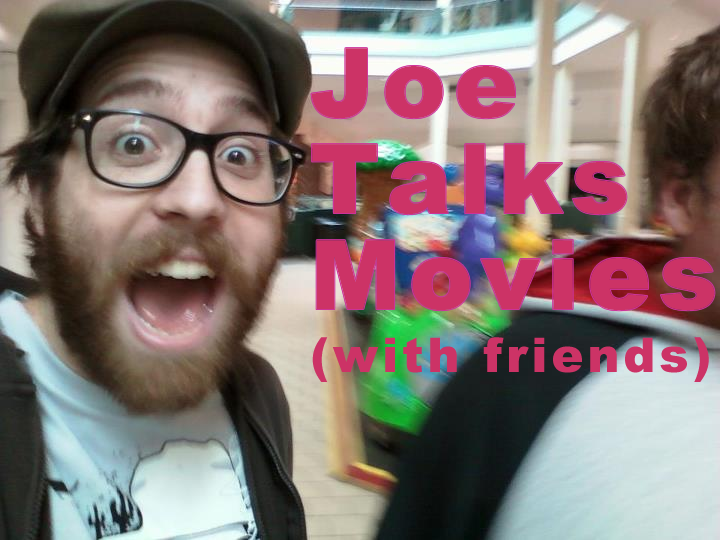I'm going to start this by
saying that I haven't put a ton of thought into this, so opposed to a
fully formed narrative for the entirety of Terminator 5, this is
my opinion how to better utilize Arnold Schwarzenegger and why
rebooting the franchise is a poor choice.
Why is a reboot a bad idea?
Mostly because they have
Schwarzenegger signed on. It doesn't make a lot of sense to redo
something if you have your main character from the first three
movies. It'd be like rebooting Indiana Jones and asking the audience
to forget that Harrison Ford already did this once (or four times). On top of having
Schwarzenegger, we can all agree that he isn't in the peak physical
form that he was when he immortalized the character of the T-800 in 1984.
Now
he is just kind of flabby.
It's not as bad as Jack Nicholson.
But
it's pretty bad, and I'm getting sick of watching movies where the special effects teams have started using CGI to add muscles and clean up aging skin.
Though, before I get into how I would use Arnie, let me
explain the core difference in what I would do, opposed to a reboot.
So far, we've seen the
human's playing defense throughout four movies. The machines are always
unstoppable and the humans have to cower, run, hide, and only fight
back when it is absolutely necessary. This formula works, especially
when it comes to killer robots. Humans do not match up on a physical
level so we're forced into using our surroundings and quick
strategies to defeat the machines. Unfortunately, after four movies this
starts to get tiresome. I think the fifth movie, or the second
installment in the second trilogy (starring Christian Bale, of
course. I think he doesn't get the credit he deserves for being John
Connor, but I will also admit he was a little too shouty in
Salvation), should start shifting the shape of the conflict from
defense to offense. We get a little bit of the offense in Salvation,
but not nearly enough. Overall, the fight scenes are heavily outweighed with
defense. But this also is the perfect setup for the gradual shift the
second movie would take, taking into account the final siege of Salvation took place with the humans attacking.
They could even call this one something like Terminator: Onslaught, or Terminator: Firefight (those
are both terrible, I know, but you get what I'm saying). The whole
idea of the movie is to stop trying to fly under the radar and
actually pursue Skynet wholeheartedly. The main objective in the movie would be to break into the bigger
Skynet HQ, looking for a more plausible weakness.
Thus, the whole
movie is built on planning the break in to Skynet. We won't see
machines for the most part, especially not any humanoid ones. In it's
essence, it would be a heist movie. Imagine a gritty, action oriented
Ocean's movie. Shit, go ahead and hire Soderbergh to direct the
thing.
How cool would that be?
The whole movie builds towards this attack on Skynet. Once they manage to get into the HQ they move through the base and find an elevator
shaft that travels deep into the ground. They have a feeling that what
they're looking for will be buried on one of the low floors. They get off on the lowest floor the shaft will take
them and then find stairs. They go even further down and that's when
they start smelling the stench. They follow the smell and come onto a
long string of prison cells. There are starving humans along with the
corpses that have started to turn rotten. John Connor's team will
start knocking down doors to release the prisoners, but that's when
they see a heavy steel door at the end of the corridor. They move
towards it, and in this moment time seems to slow to a crawl. The door is locked,
but they know it isn't for their safety, but rather the machines.
They try shooting through, but the door is reinforced.
They have
to resort to plastic explosives. After much effort, they get the door
to drop, and when they get in the small solitary cell Connor's blood
chills. Curled in the corner, on the verge of death, is
Schwarzenegger. He is a shell of a man and any form of contact with
any sort of intelligence puts him far on edge. He cowers away, but
with some gentle coaxing they get him into the larger
corridor. This is when we find out that the machines had used
Schwarzenegger as the model for their T-800. They abducted him when
he was in his peak physical shape. They probed and studied him to
learn not only what would be the perfect disguise and adversary for
humans, but also the major weaknesses of humans in tip-top shape.
This would be another human element to the Terminator character, but
also show us the terrifying reality that lays in the A.I. for Skynet.
With this, you get a Terminator sequel that will continue the story,
you get Schwarzenegger not embarrassing himself (like in T3: Rise of
the Machines), and you add layers to the Terminator mythology. We're firing on all wins.
I'm kind of behind on this
one, but my phone's always on.
What do you guys think?





















